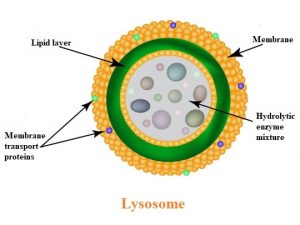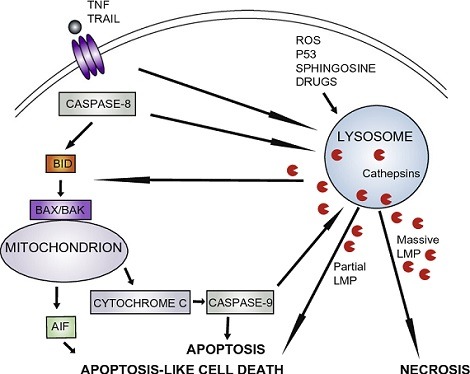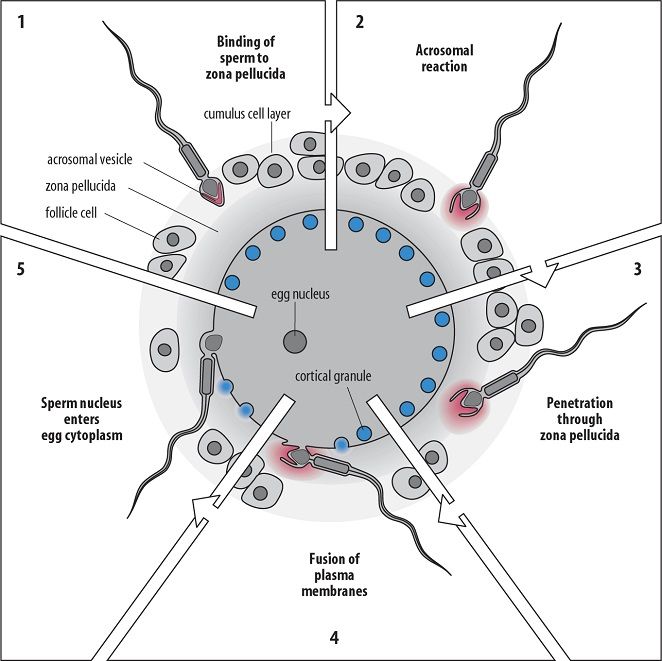Importance of lysosomes is not limited to cell death alone.
As we know, lysosomes are the cell organelles which act as storehouses of catalytic enzymes.
Many hydrolytic lysosomal enzymes enclosed in the membranous organelle.
The lysosomes are primarily involved in digestion, cell death, repair, defense and also growth.
The hydrolytic enzymes are enclosed inside the organelle and if these enzymes are leaked into the cytoplasm it can lead to severe damage to the cell. Hence, lysosomes are also involved in disease.
Importance of Lysosomes
Lysosomes are important in different aspects of organisms. They include

1. Intra-cellular digestion
2. Cell renovation
3. Apoptosis
4. Prevent the entry of harmful agents into the cell
5. Fertilization
6. Egg growth
7. Kill the infection
8. Health disorders
9. In seed germination
10. In metamorphosis of the tadpole
Intra-cellular digestion: Just like we have digestive organs in our body for food digestion, lysosomes act to digest carbohydrates, proteins nutritious substances reaching the cell. This is especially useful in protozoa, plants and higher animals.
Cell renovation: When some organelles in the cell like the mitochondria are damaged, they are replaced by new ones. These damaged ones are digested and removed from the cytoplasm by lysosomal enzymes.

Apoptosis: Another critical importance of lysosomes is in natural cell death. A cell undergoes death by a phenomenon known as programmed cell death. This is termed as apoptosis and occurs when the cell has degenerated and the chances of repair and recovery are not possible.
Those cells which lack this ability of self-death will undergo profuse cell divisions. Cancer cells are an example where due to lack of apoptosis function, they tend to grow non stop.
Prevent the entry of harmful agents into the cell: Lysosomes are present near to the cell membrane and keep a watch on the entry of substances into the cell through it. They destroy any foreign agent trying to gain entry into the cell. Hence, few pathogens try to compromise this lysosomal function in order to gain entry into the cell.
Fertilization:

In the tips of the sperm called as acronym enzymes, protease and hyaluronidase are released besides acid phosphatase. The enzyme protease formed by lysosomes helps to make a channel in the ova and helps sperm penetrate and helps in fertilization.
Egg growth: Eggs have reserve food material. The lysosomes help in digestion of reserve food material and provide energy and nutrition for growth.
Kill the infections: When a bacteria or other harmful microbes enter into the body, they are engulfed by macrophages (a type of white blood cells). Inside these macrophages, the pathogens are digested and killed by the lysosomal enzymes. Hence, there are a huge number of lysosomes in the macrophages while few in number in other types of white blood cells.
In Health disorders: There are also few health disorders linked to lysosomal function. During the conditions like acidosis, shock, and anoxia there is a sudden release of lysosomal enzymes leading to an enhanced release of enzymes into the blood. In asthma and other conditions, there is an acute release of lysosomal enzymes from macrophages leading to inflammation. So damage to lysosomes can be harmful to the body. In most cases, these lysosomes are damaged due to external environmental conditions in the cytoplasm or in the body.
Besides, what would happen if the lysosomes were missing?
Since lysosomes are involved in digestion and autophagy, without them or their malfunction could lead to the development of lysosomal storage disorders and even cancer.
Seed germination: Even in plant lysosomes play a similar role, however, the importance of lysosomes extend even into seed germination. They help in use up of carbohydrate and protein from the seed during the germination of the embryo in it. Thus they support the growth of a plant from seed.
Metamorphosis of tadpole:

Lysosomes are also involved in the metamorphosis process to a certain extent. We are aware that a frog is formed by metamorphosis from a fish like a tadpole. Lysosomes are involved in the reduction of the tail of a tadpole. The enzymes namely cathepsins at a type of proteolytic help in degeneration of tadpole tail.
Thus from the above, we can understand why are lysosomes important to eukaryotic cells in critical aspects of its physiology.